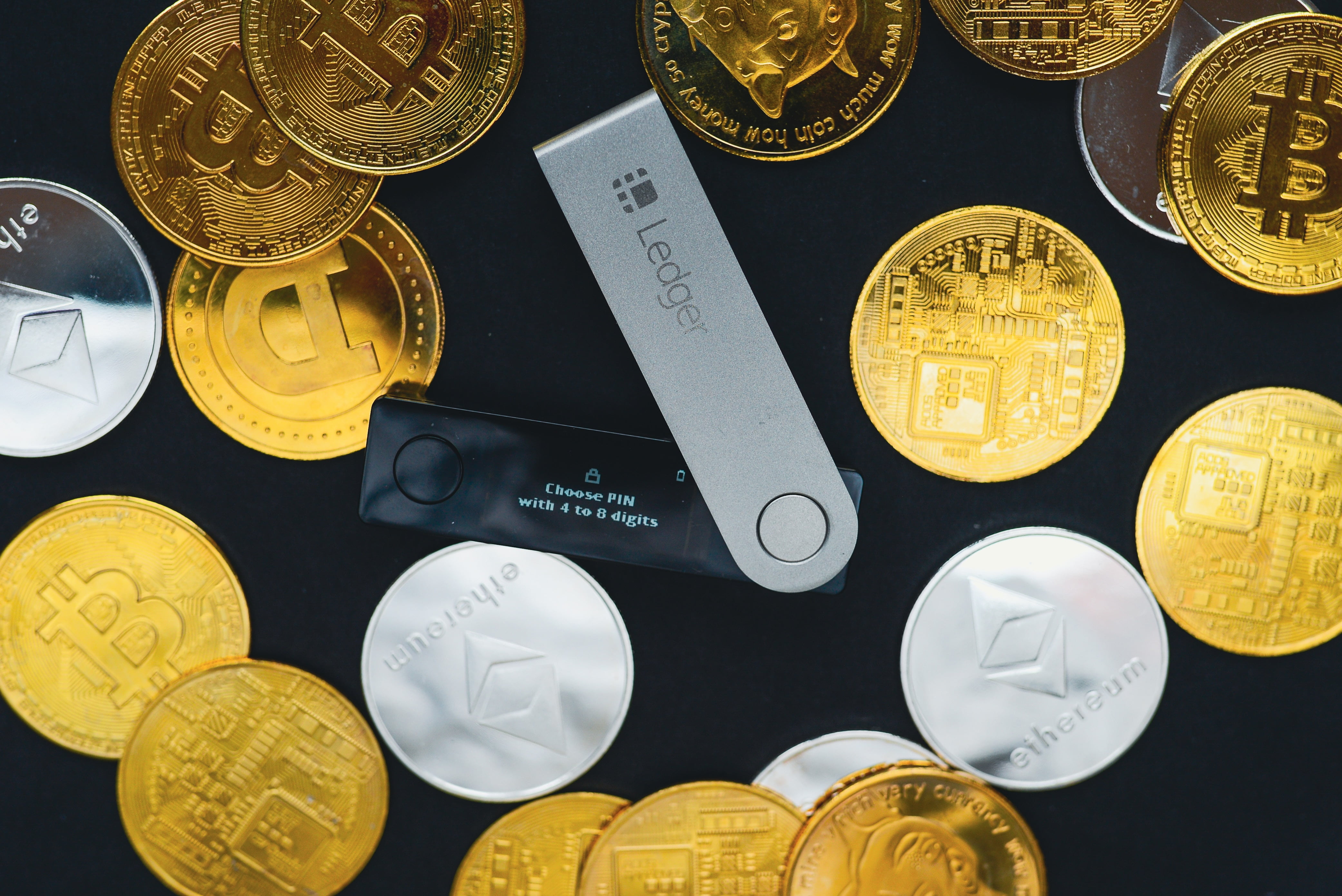A cryptocurrency wallet is the digital equivalent of a real-life wallet or a personal bank vault but is specifically designed for your cryptocurrencies.
Crypto wallets are crucial components of the digital asset ecosystem; they enable users to store, send, and receive cryptocurrencies like Bitcoin, Ethereum, and other altcoins safely and securely.
However, with the increasing popularity of cryptocurrencies, wallet options have sky-rocketed like fireworks on New Year’s Eve. This means that you need to be extra careful when choosing the appropriate wallet that suits your needs and ensures the safety of your digital assets.
In this article, we will provide an overview of the types of cryptocurrency wallets and the best practices for securing them.
Types Of Cryptocurrency Wallets
Before embarking on your journey of building a flourishing digital asset portfolio, it’s essential to equip yourself with the knowledge of securely managing your favorite coins. Let`s explore the diverse types of cryptocurrency wallets available in the market today.
- Hot and Cold Wallets
Hot and Cold wallets are terms used to categorize crypto wallets based on their internet connectivity. Hot wallets, typically online or internet-based, are connected to the internet and designed for convenience and speedy transactions. They generate a public key, which acts as a wallet address for receiving funds. The public key is stored on the internet-connected device.
As a popular choice among regular cryptocurrency users, hot wallets are relatively easy to set up and use. However, their continuous internet connection makes them more susceptible to cyber threats and hacking attempts.
Cold wallets, on the other hand, are offline wallets not actively connected to the internet. Designed with security at the forefront, cold wallets prioritize the safeguarding of digital assets.
Cold wallets store public and private keys offline, reducing hacking and cyber threats. They are ideal for users who prioritize safety over convenience and those who store large amounts of cryptocurrencies.
2. Software Wallets
Software wallets come in different forms, including desktop wallets and mobile wallets.
- Desktop Wallets: These are downloadable applications installed on your computer, offering more control and flexibility than web-based wallets. Since the wallet is stored on your device, you have complete control. However, this also means that you must be cautious while securing your computer and maintaining a backup of your wallet.
- Mobile Wallets: Mobile wallets are applications designed for smartphones, which enable easy access to cryptocurrencies while on the go. These wallets are usually lightweight and provide a wide range of features.
3. Hardware Wallets
Hardware wallets are physical, electronic devices specifically designed to store cryptocurrencies’ private keys securely.
They require the device to authorize transactions, ensuring insulation from online threats. These are considered the safest option among cryptocurrency wallets, especially for holding large amounts of crypto. However, hardware wallets have a price tag generally higher than other wallet types.
4. Paper Wallets
A paper wallet consists of printed private and public keys, often in the form of QR codes. Users must import the private key into a software wallet to spend or transfer cryptocurrencies from a paper wallet.
While paper wallets are considered a secure form of cold storage, they are also susceptible to environmental damage and theft, demanding additional security measures for safekeeping.
Security Best Practices: Top Strategies For Safeguarding Your Crypto

The safety of your cryptocurrency wallets is directly tied to your understanding, vigilance, and execution of the right security measures.
Let’s dive in and discover how to shield your precious cryptocurrency holdings from prying eyes and mischievous cyber pirates!
1. Use Strong, Unique Passwords: It is crucial to use strong, unique passwords for all your cryptocurrency wallets. Also avoid reusing the same password across multiple platforms.
Implementing password managers can make managing unique passwords more manageable and help minimize the risk of unauthorized access.
2. Enable Multi-Factor Authentication: Multi-factor authentication adds an extra layer of security, requiring multiple proofs of identity before granting access to a wallet.
Wallets that support MFA should be given preference, as it makes unauthorized access more difficult for cybercriminals.
3. Keep Your Wallet Software Up-to-Date: Regularly updating your wallet software helps users benefit from the latest security patches while staying ahead of potential vulnerabilities.
This includes updates for your wallet application and the operating system of the device on which the wallet resides.
4. Backup Your Wallet: Backing up your wallet ensures you have a recovery option in case of hardware failure, accidental deletion, or theft. Maintaining multiple secure backups of your wallet, is recommended to reduce the risk of permanent loss.
5. Be Cautious When Using Public Networks: Public Wi-Fi networks can be easily tampered with, and users should avoid accessing their cryptocurrency wallet through such networks. If you must access your wallet through an untrusted network, ensure you use a VPN for an added layer of security.
6. Store Large Amounts of Cryptocurrencies Offline: Use cold storage or hardware wallets for substantial cryptocurrency holdings as they are less vulnerable to hacking than hot wallets.
7. Evaluate Wallet Providers: Before choosing a wallet provider, conduct thorough research to ensure the provider is reputable. Reviews, user experiences, and customer support are essential factors to consider when selecting a wallet provider.
Conclusion
Safe and secure storage of digital assets is crucial for every cryptocurrency user. From hot wallets to cold storage, each type of wallet has pros and cons. Securing your digital assets with strong passwords, using MFAs, and updating wallets are essential to help protect your digital assets.
Remember, the responsibility of securing your digital assets ultimately lies in your hands, and vigilance, as well as knowledge about wallet types and their security practices, are imperative for ensuring the safety of your cryptocurrencies.
Read More:
Web3 Gaming Play-to-Earn – The Future of Gaming on Blockchain
Blockchain’s Potential to Save Financial Institutions $10B by 2030

